- Overview
- Symptoms
- Causes & Risks
- Tests & Diagnosis
- Treatment
- Living With
- Complications
- Support & Resources
- Appointment Prep
- View Full Guide
Tea and Inflammation

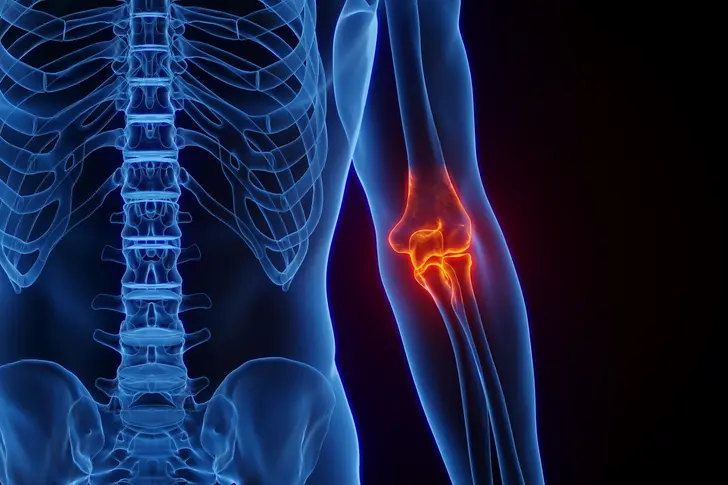
How Tea Fights Inflammation
Tea contains powerful compounds called polyphenols that can help fight inflammation in your body. Inflammation is your immune system's response to injury or illness, but when it becomes chronic, it can lead to health problems like heart disease, diabetes, and arthritis. The antioxidants in tea can help reduce this harmful inflammation and promote better health.
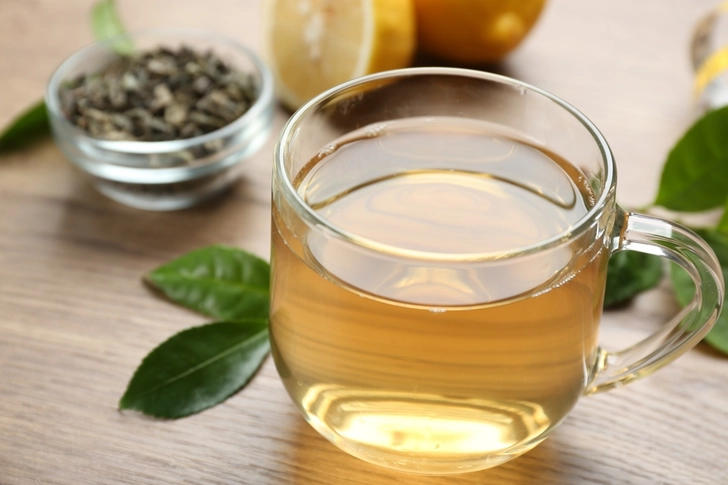
Green Tea
Green tea is packed with catechins, especially one called EGCG, which is a strong anti-inflammatory. Research shows it may help with conditions like rheumatoid arthritis by reducing joint pain and swelling. Green tea might also protect your brain cells from inflammation-related damage. For the most benefit, drink two to three cups daily, choosing loose leaf tea over bottled versions.
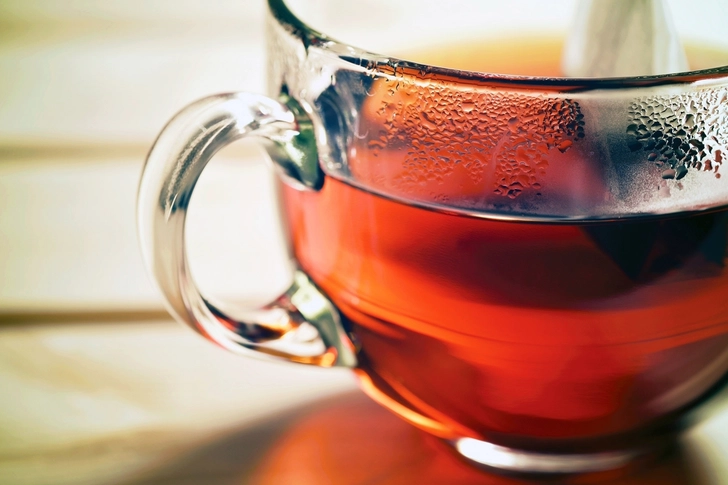
Black Tea
Black tea contains polyphenols that can help lower inflammation markers in your body. Studies show regularly drinking black tea may reduce your risk of heart disease by improving blood vessel function and lowering inflammation. Black tea also contains compounds that may help reduce inflammatory responses in your digestive system.
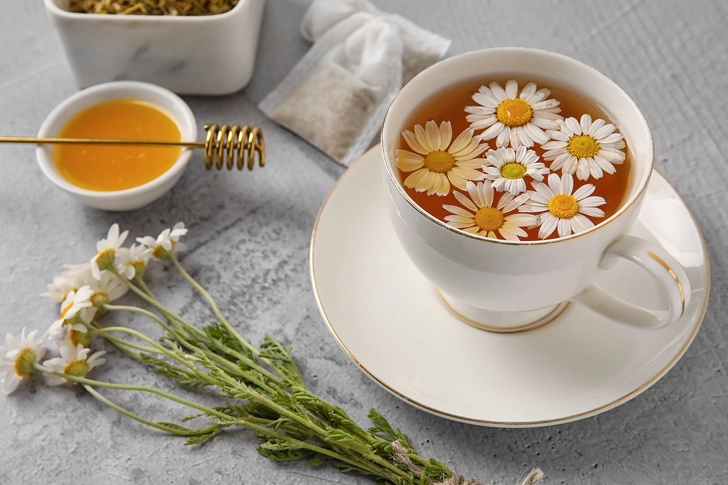
Chamomile
Chamomile tea contains apigenin and other compounds that can reduce inflammation throughout your body. This gentle herb may help soothe digestive inflammation, reduce menstrual pain, and even improve symptoms of anxiety and depression. Try drinking a cup of chamomile tea before bed to reduce inflammation while promoting relaxation and better sleep.
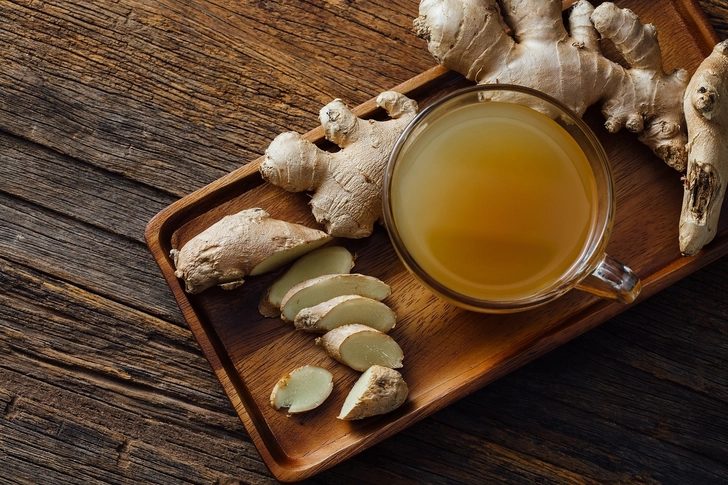
Ginger Tea
Ginger tea contains gingerols that reduce inflammation in the body. It's particularly effective for muscle pain, menstrual cramps, and digestive inflammation. Make fresh ginger tea by simmering sliced ginger root in water for 10-15 minutes, then adding lemon and honey if desired for a warming anti-inflammatory drink.
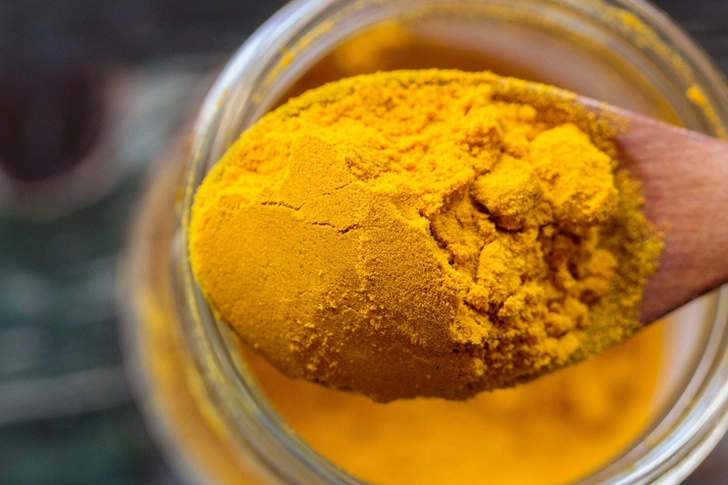
Turmeric Tea
Turmeric tea contains curcumin, one of nature's most powerful anti-inflammatory compounds. You can make turmeric tea by steeping ground, freshly sliced, or grated turmeric in hot water and letting it steep for about 10-15 minutes. Try having a cup daily to help reduce inflammation throughout your body.

Making Tea Work Best for You
For maximum anti-inflammatory benefits, brew your tea properly. Use water that's the right temperature (175 F for green tea, boiling for black), steep for the recommended time (three to five minutes), and choose loose leaf over tea bags when possible. Avoid adding lots of sugar, which can increase inflammation. Instead, try a touch of honey or lemon.

When to Drink Tea for Inflammation
Consistency matters more than timing. Aim for two to three cups throughout your day to maintain steady levels of anti-inflammatory compounds in your body. If you're sensitive to caffeine, have your last cup of black or green tea before 2 p.m., or switch to caffeine-free options like chamomile in the evening. Morning tea may help reduce inflammation from overnight fasting.
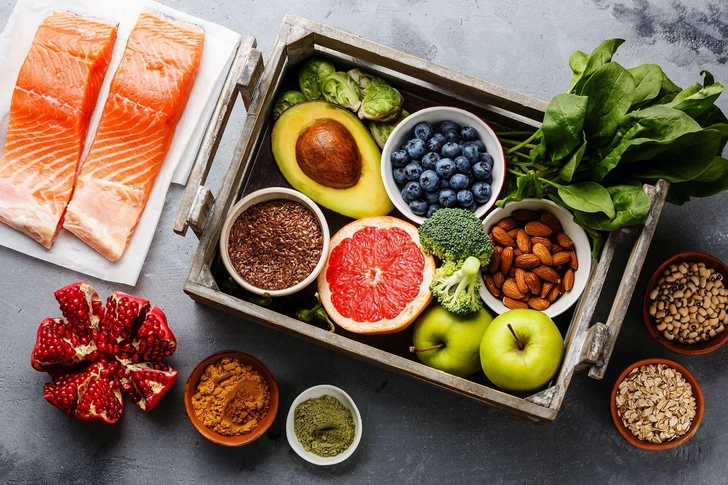
Tea as Part of an Anti-Inflammatory Lifestyle
While tea can help fight inflammation, it works best as part of a comprehensive approach. Combine your tea habit with an anti-inflammatory diet rich in fruits, vegetables, and omega-3 fats. Stay physically active, get enough sleep, and manage stress — all of which help control inflammation. Talk to your doctor before using tea as a treatment for any specific condition.
PHOTO CREDENTIALS
Slide 1 - 3dMediSphere / Shutterstock
Slide 2 - New Africa / Shutterstock
Slide 3 - Getty / Getty Images
Slide 4 - Pixel-Shot / Shutterstock
Slide 5 - nafterphoto / Shutterstock
Slide 6 - MiljaPhoto / Getty Images
Slide 7 - iStock / Getty Images
Slide 8 - fongbeerredhot / Shutterstock
Slide 9 - Lisovskaya / Thinkstock
SOURCES:
Academy of Nutrition and Dietetics: “The Health Benefits of Tea.”
Atherosclerosis: “The effects of chronic tea intake on platelet activation and inflammation: A double-blind placebo controlled trial.”
Diabetes Teaching Center at the University of California, San Francisco: “Demystifying Sugar.”
Frontiers in Immunology: “Role of C-Reactive Protein at Sites of Inflammation and Infection.”
Frontiers in Nutrition: “The Role of Polyphenols in Human Health and Food Systems: A Mini-Review.”
Harvard Health Publishing: “Health benefits linked to drinking tea,” “Understanding acute and chronic inflammation.”
International Journal of Molecular Sciences: “Health Functions and Related Molecular Mechanisms of Tea Components: An Update Review.”
Linus Pauling Institute: “Tea.”
Michigan State University: “Food micronutrients explained — Antioxidants, anti-inflammatories and phytochemicals.”
Nutrition Research: “Green tea extract reduces blood pressure, inflammatory biomarkers, and oxidative stress and improves parameters associated with insulin resistance in obese, hypertensive patients.”
Pahwa, R., Goyal, A., Bansal, P., Jialal, I. Chronic Inflammation, StatPearls Publishing, 2020.
Penn Medicine: “The Hidden Health Benefits of Tea.”
Arthritis & Rheumatology: “Effects of a ginger extract on knee pain in patients with osteoarthritis.”
Gastroenterology Research Practices: “Ginger and Its Constituents: Role in Prevention and Treatment of Gastrointestinal Cancer.”
Indian Journal of Clinical Biochemistry: “Vitamin C Rich Fruits Can Prevent Heart Disease.”
Integrated Medical Insights: “The Effectiveness of Ginger in the Prevention of Nausea and Vomiting during Pregnancy and Chemotherapy.”
International Journal of Preventive Medicine: “Anti-Oxidative and Anti-Inflammatory Effects of Ginger in Health and Physical Activity: Review of Current Evidence.”
Journal of Contemporary Dental Practice: “Antimicrobial Effect of Ginger, Garlic, Honey, and Lemon Extracts on Streptococcus mutans.”
Metabolism: “Ginger consumption enhances the thermic effect of food and promotes feelings of satiety without affecting metabolic and hormonal parameters in overweight men: A pilot study.”
Mini-Reviews in Medicinal Chemistry: “Ascorbic acid: its role in immune system and chronic inflammation diseases.”
Nutrition Journal: “A systematic review and meta-analysis of the effect and safety of ginger in the treatment of pregnancy-associated nausea and vomiting.”
Nutrition Research: “Lemon detox diet reduced body fat, insulin resistance, and serum hs-CRP level without hematological changes in overweight Korean women.”
Seminars in Oncology: “Cancer prevention with natural compounds.”
U.S. Department of Agriculture: “FoodData Central: ORGANIC LEMON & GINGER HERBAL TEA.”
U.S. Department of Veterans Affairs Whole Health Library: “Managing Chemotherapy-Induced Nausea and Vomiting.”
Wachtel-Galor, S: Herbal Medicine: Biomolecular and Clinical Aspects, CRC Press, 2011.
ESHA Research Inc., Salem, Oregon: “Spice, Turmeric, Ground.”
Frontiers in Pharmacology: “Turmeric and Its Major Compound Curcumin on Health: Bioactive Effects and Safety Profiles for Food, Pharmaceutical, Biotechnological and Medicinal Applications.”
Herbal Medicine: Biomolecular and Clinical Aspects. 2nd edition.: “Chapter 13 Turmeric, the Golden Spice.”
Journal of Applied Biotechnology & Bioengineering: “Role of Antioxidants in Prevention of Diseases.”
Journal of Clinical Immunology: “Spicing Up of the Immune System by Curcumin.”
Cell Division: “Curcumin and Tumor Immune-Editing: Resurrecting the Immune System.”
Oncogene: “Nonsteroidal Anti-Inflammatory Agents Differ In Their Ability to Suppress NF-kappaB Activation, Inhibition of Expression of Cytooxygenase-2 and Cyclin D1, and Abrogation of Tumor Cell Proliferation.”
SpringerPlus: “Curcumin: A New Paradigm and Therapeutic Opportunity for the Treatment of Osteoarthritis: Curcumin for Osteoarthritis Management.”
Nutrition Journal: “Efficacy and Safety of Turmeric and Curcumin in Lowering Blood Lipid Levels in Patients with Cardiovascular Risk Factors: A Meta-Analysis of Randomized, Controlled Trials.”
The American Journal of Cardiology: “Effects of Curcuminoids on Frequency of Acute Myocardial Infarction After Coronary Artery Bypass Grafting.”
World Journal of Gastroenterology: “Therapeutic Applications of Curcumin for Patients with Pancreatic Cancer.”
Nutrients: “Curcumin and Cancer.”
Cancer Prevention Research: “Phase IIa Clinical Trial of Curcumin for the Prevention of Colorectal Neoplasia.”
Biofactors: “Curcumin and Neurodegenerative Diseases.”
Phytotherapy Research: “Efficacy and Safety of Curcumin in Major Depressive Disorder: A Randomized, Controlled Trial.”